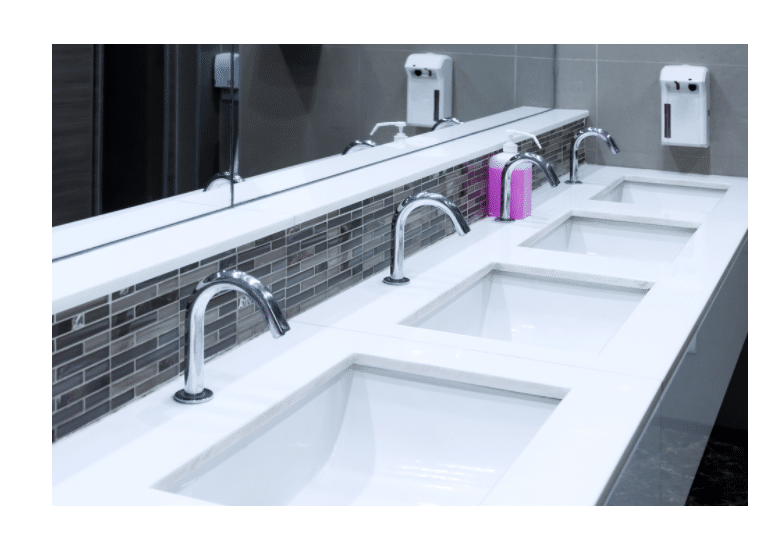Commercial plumbing in Tyler, TX, presents a unique set of challenges that differ significantly from residential systems. With larger buildings and higher usage demands, these plumbing systems require specialized attention to maintain efficiency. Unlike the simpler setups found in homes, commercial plumbing has to handle complex infrastructure and varied usage, which can lead to more frequent and larger-scale issues.
High water demand, pressure fluctuations, and the potential for backflow are just a few challenges businesses face. Each of these problems can disrupt operations and lead to costly repairs if not properly managed. Understanding the unique needs of commercial plumbing systems is crucial for business owners who want to keep their facilities running smoothly and avoid unexpected downtime.
In addition to daily operational concerns, businesses must navigate local regulations and compliance standards. Staying ahead of these requirements ensures systems are not only efficient but also safe and up to code. Regular inspections and proper documentation play a crucial role in maintaining a reliable and compliant plumbing system. In this article, we’ll explore these challenges and provide strategies for effective maintenance.
Understanding the Complexities of Commercial Plumbing Systems
Differences Between Commercial and Residential Plumbing
Commercial plumbing systems are built for complexity. Unlike residential plumbing, which waters a few sinks, toilets, and showers, commercial systems must serve numerous fixtures across multiple floors. These systems are larger and require more intricate layouts to manage diverse needs, such as restrooms, kitchens, and sometimes even industrial setups.
The main difference lies in the scale and variety of usage. Commercial plumbing involves larger pipes, efficient water heating systems, and specialized fixtures to accommodate varying demands. Maintenance is key to ensuring these extensive networks function smoothly, as any failure can disrupt business operations.
Impact of Building Size and Usage on Plumbing Needs
The size of a commercial property significantly impacts its plumbing needs. Bigger buildings mean a more extensive network of pipes and fixtures, demanding a robust system to maintain water pressure and flow. High-rise buildings, for instance, must have advanced pump systems to ensure water reaches all floors effectively.
Usage also varies widely in commercial spaces. A restaurant has different needs compared to a retail store or an office building. Each type must handle waste disposal efficiently while anticipating peaks in water usage. This varying demand necessitates well-planned plumbing systems capable of managing both regular and intensive use without hitches.
Common Plumbing Issues in Commercial Buildings
Dealing with High Water Demand and Pressure Fluctuations
Commercial buildings often encounter issues due to high water demand. Fluctuations in water pressure can wreak havoc on plumbing systems. During peak times, pressure can drop, causing disruptions in water supply. Conversely, when demand decreases suddenly, pressure might spike, putting strain on fixtures and piping.
To manage these problems, it’s crucial to have pressure regulators installed and maintained. These devices help balance water flow, ensuring consistent distribution throughout the property. Regularly checking pressure levels and making necessary adjustments ensures smooth operations and minimizes the risk of plumbing failures.
Identifying and Addressing Backflow Concerns
Backflow is a major concern in commercial plumbing. It occurs when contaminated water reverses flow into clean water supplies, posing significant health hazards. Backflow typically happens due to changes in water pressure, especially when high demand or malfunctions occur.
Preventing backflow requires the installation of specialized devices known as backflow preventers. These devices need regular testing and maintenance to function effectively. It is important for building managers to remain vigilant for signs of potential backflow, ensuring these preventers are always in good working order. Regular checks help maintain water quality and prevent health risks associated with contamination.
Regulatory and Compliance Challenges
Navigating Local Codes and Standards in Tyler, TX
In Tyler, TX, commercial plumbing must meet specific local codes and standards. These regulations ensure that plumbing systems are safe, efficient, and environmentally friendly. Each building type, whether a restaurant, office, or factory, may face unique requirements. These codes address everything from pipe materials to the type of backflow preventers used.
Understanding these local regulations is crucial for any business operating in Tyler. It involves regularly consulting local authorities and sometimes hiring experts to interpret and implement these standards. Keeping up-to-date with any changes in local laws helps avoid costly fines and ensures the business remains in compliance with health and safety requirements.
Importance of Regular Inspections and Documentation
Regular inspections play a key role in maintaining compliance and ensuring the safety of commercial plumbing systems. Inspections help identify potential issues early, such as leaks, blockages, or outdated components, before they become larger problems. These checks are crucial for maintaining compliance with local standards.
Documentation is equally important. Keeping detailed records of inspections, maintenance activities, and any plumbing work done provides a clear history of the system’s condition. This documentation can be vital during audits or when addressing regulatory queries. It also serves as a valuable tool for planning future maintenance or upgrades, helping ensure the plumbing system continues to function effectively.
Strategies for Effective Commercial Plumbing Maintenance
Implementing Preventive Maintenance Plans
Implementing a preventive maintenance plan is essential for effective plumbing management in commercial settings. These plans involve regular scheduled checks and servicing of all plumbing components to prevent breakdowns. The goal is to address minor issues before they escalate into costly repairs.
A good maintenance plan includes routine inspections, cleaning of drains and pipes, checking and calibrating pressure, and testing backflow preventers. Employees should be trained to spot and report any irregularities, ensuring prompt action. Such proactive measures help maintain uninterrupted service while prolonging the life of the plumbing system.
Leveraging Technology for Efficient System Monitoring
Technology offers innovative solutions for monitoring commercial plumbing systems. Smart sensors and devices can now keep track of water flow, pressure levels, and detect leaks in real time. These tools provide instant alerts when there’s a sign of trouble, allowing for immediate response.
Utilizing software that regularly updates records on the system’s performance helps manage maintenance schedules more efficiently. By analyzing data trends, businesses can predict potential issues before they occur. Embracing technology not only enhances system reliability but also improves overall efficiency, reducing the likelihood of unexpected failures.
Conclusion
Commercial plumbing systems in Tyler, TX, require careful planning and maintenance, especially given the diverse needs and regulatory requirements. By understanding the complexity and unique challenges, businesses can put in place effective strategies that ensure reliable and safe plumbing operations. Regular inspections, adhering to local codes, and embracing advances in technology all contribute to a well-maintained system.
Addressing the various complexities of commercial plumbing might seem overwhelming, but comprehensive planning simplifies the process. By focusing on preventive measures and being proactive, businesses can ensure that their plumbing systems run smoothly without unexpected interruptions.
For reliable solutions to your commercial plumbing challenges, consider Glasscock Plumbing Services. We bring expertise in dealing with high-demand systems, understanding complex codes, and implementing efficient maintenance strategies. Our team helps make sure your business remains compliant and your plumbing operates seamlessly. Contact us today to learn more about how our commercial plumber services can support your business needs!

















